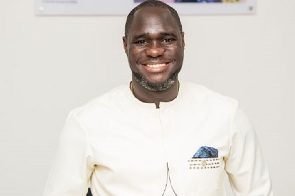Sunyani, March 09, GNA- Nana Kwadwo Seinti, the Brong Ahafo Regional Minister, on Tuesday expressed the government's commitment to ensuring equal development of women in the country. He said this was manifested in the number of policies and programmes initiated by the government aimed at empowering women in all spheres of life.
The Regional Minister said this in a speech read for him at a one-day seminar organised by the Department of Women of the Ministry of Women and Children's Affairs and the Brong Ahafo Region branch of the National Commission on Women and Development to mark the International Women's Day.
Market women, women groups and organisations attended the seminar that was under the theme, "30 years of Women's Movement in Ghana: Counting the gains".
Nana Seinti said the creation of the Ministry of Women and Children Affairs was in fulfilment of the government's promise to abide by all United Nations Conventions designed to remove all forms of discrimination against women.
"Women have for a long time been discriminated against and this is noted in the small percentage of women who hold key political positions, few women who are economically empowered, a small percentage of women who are highly educated and hold high positions in the public and civil service", he said.
The Regional Minister said negative cultural practices, including widowhood rites; Trokosi system negated the progress of women. He said the government's position emboldened women groups in the country to fight for the right of women, stressing that the recent appointment of many women to ministerial positions was influenced by the incessant campaign launched by women groups.
Mrs Thoraya Ahmed Obaid, Executive Director of the United Nations Population Fund (UNFPA), appealed to the government to reaffirm and reinforce its commitment to reducing poverty, providing equal access to education, health services, income earning opportunities and legal rights benefits, which contribute to the social and economic progress of women.
"Gender equality and women's empowerment are critical to social and economic development as limiting women's opportunities and rights because of their roles and functions as mothers, limits the development of societies and nations", she said.
Ms Juliana Amponsah, Regional Director of NCWD, said the status of women in the country had changed due to the intensification of education in human rights to enable women to play more proactive roles as agents of change, equal access to education and attainment of educational qualifications.
She said seven out of 10 schools that topped in the Senior Secondary School Certificate Examination are girls' schools and that more girls are now offering mathematics, science and technical courses at secondary and tertiary levels of education. Ms Amponsah appealed to the government to adequately resource and to strengthen women organizations that deal with the welfare of women. 09 March 05
General News of Wednesday, 9 March 2005
Source: GNA
















